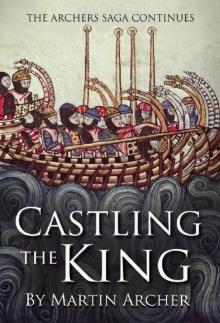 Castling The King
Castling The King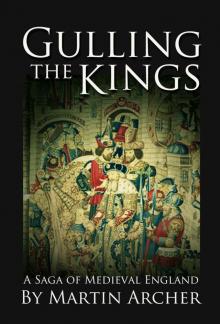 Gulling The Kings
Gulling The Kings Israel's Next War
Israel's Next War Our Next Great War
Our Next Great War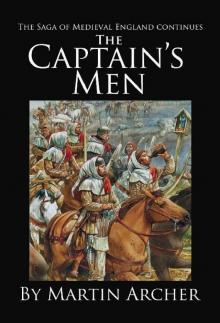 The Captain's Men
The Captain's Men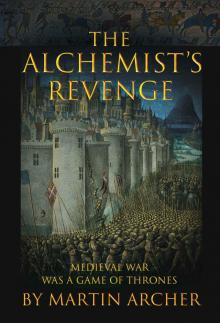 The Alchemist's Revenge
The Alchemist's Revenge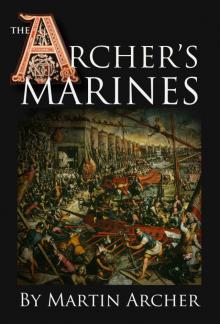 The Archer's Marines: The First Marines - Medieval fiction action story about Marines, naval warfare, and knights after King Richard's crusade in Syria, ... times (The Company of Archers Book 5)
The Archer's Marines: The First Marines - Medieval fiction action story about Marines, naval warfare, and knights after King Richard's crusade in Syria, ... times (The Company of Archers Book 5)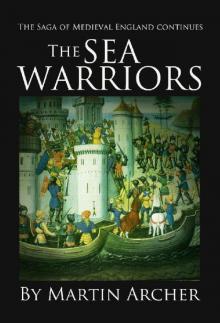 Sea Warriors
Sea Warriors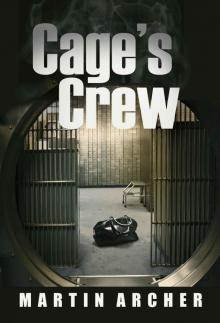 Cage's Crew
Cage's Crew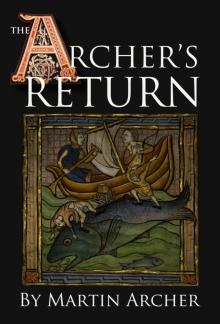 The Archer's Return: Medieval story in feudal times about knights, Templars, crusaders, Marines, and naval warfare during the Middle Ages in England in the reign of King Richard the lionhearted
The Archer's Return: Medieval story in feudal times about knights, Templars, crusaders, Marines, and naval warfare during the Middle Ages in England in the reign of King Richard the lionhearted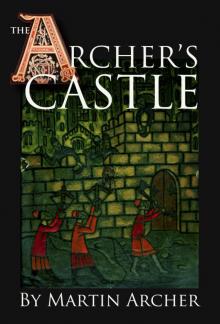 The Archer's Castle: Exciting medieval novel and historical fiction about an English archer, knights templar, and the crusades during the middle ages in England in feudal times before Thomas Cromwell
The Archer's Castle: Exciting medieval novel and historical fiction about an English archer, knights templar, and the crusades during the middle ages in England in feudal times before Thomas Cromwell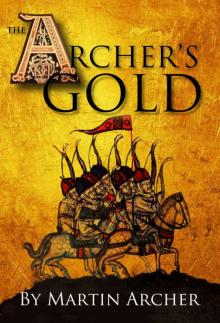 The Archer's Gold: Medieval Military fiction: A Novel about Wars, Knights, Pirates, and Crusaders in The Years of the Feudal Middle Ages of William Marshall ... (The Company of English Archers Book 7)
The Archer's Gold: Medieval Military fiction: A Novel about Wars, Knights, Pirates, and Crusaders in The Years of the Feudal Middle Ages of William Marshall ... (The Company of English Archers Book 7)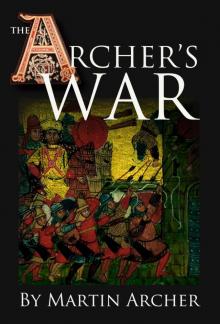 The Archer's War: Exciting good read - adventure fiction about fighting and combat during medieval times in feudal England with archers, longbows, knights, ... (The Company of English Archers Book 4)
The Archer's War: Exciting good read - adventure fiction about fighting and combat during medieval times in feudal England with archers, longbows, knights, ... (The Company of English Archers Book 4)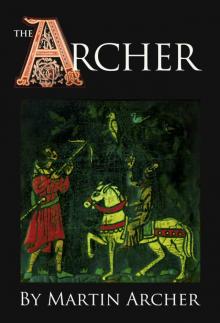 The Archer: Historical Fiction: exciting novel about Marines and Naval Warfare of medieval England set in feudal times with knights,Templars, and crusaders during Richard the lionhearted's reign
The Archer: Historical Fiction: exciting novel about Marines and Naval Warfare of medieval England set in feudal times with knights,Templars, and crusaders during Richard the lionhearted's reign Castling The King
Castling The King Gulling The Kings
Gulling The Kings Israel's Next War
Israel's Next War Our Next Great War
Our Next Great War The Captain's Men
The Captain's Men The Alchemist's Revenge
The Alchemist's Revenge The Archer's Marines: The First Marines - Medieval fiction action story about Marines, naval warfare, and knights after King Richard's crusade in Syria, ... times (The Company of Archers Book 5)
The Archer's Marines: The First Marines - Medieval fiction action story about Marines, naval warfare, and knights after King Richard's crusade in Syria, ... times (The Company of Archers Book 5) Sea Warriors
Sea Warriors Cage's Crew
Cage's Crew The Archer's Return: Medieval story in feudal times about knights, Templars, crusaders, Marines, and naval warfare during the Middle Ages in England in the reign of King Richard the lionhearted
The Archer's Return: Medieval story in feudal times about knights, Templars, crusaders, Marines, and naval warfare during the Middle Ages in England in the reign of King Richard the lionhearted The Archer's Castle: Exciting medieval novel and historical fiction about an English archer, knights templar, and the crusades during the middle ages in England in feudal times before Thomas Cromwell
The Archer's Castle: Exciting medieval novel and historical fiction about an English archer, knights templar, and the crusades during the middle ages in England in feudal times before Thomas Cromwell The Archer's Gold: Medieval Military fiction: A Novel about Wars, Knights, Pirates, and Crusaders in The Years of the Feudal Middle Ages of William Marshall ... (The Company of English Archers Book 7)
The Archer's Gold: Medieval Military fiction: A Novel about Wars, Knights, Pirates, and Crusaders in The Years of the Feudal Middle Ages of William Marshall ... (The Company of English Archers Book 7) The Archer's War: Exciting good read - adventure fiction about fighting and combat during medieval times in feudal England with archers, longbows, knights, ... (The Company of English Archers Book 4)
The Archer's War: Exciting good read - adventure fiction about fighting and combat during medieval times in feudal England with archers, longbows, knights, ... (The Company of English Archers Book 4) The Archer: Historical Fiction: exciting novel about Marines and Naval Warfare of medieval England set in feudal times with knights,Templars, and crusaders during Richard the lionhearted's reign
The Archer: Historical Fiction: exciting novel about Marines and Naval Warfare of medieval England set in feudal times with knights,Templars, and crusaders during Richard the lionhearted's reign